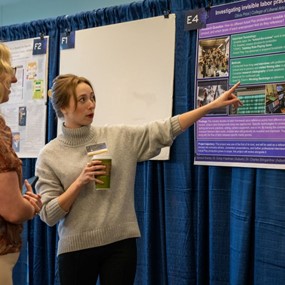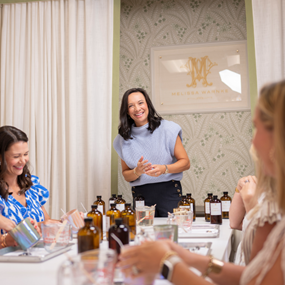Auburn University student researching how talking to children about voting shapes lifelong voting behavior
Throughout the election cycle, parents and educators will face questions about how to talk to children about politics.
Hannah Raitz, a graduate student in Auburn University's School of Communication and Journalism, hopes to inform those conversations by researching how memorable messages from childhood can influence voting behavior in adulthood.
"When we talk to someone about something, we do shape their opinions. We do shape the way they think about something," Raitz said. "We want to show that every single thing that you communicate to your children, to your friends, everything you hear in your childhood, does stick with you and does impact you later in life."
Raitz's current study surveyed 140 participants, all of whom are eligible to vote for the first time in 2024, about how their parents spoke to them about voting. Positive examples included, "It is your responsibility as a good citizen to vote," and negative examples included, "A single vote doesn’t matter."
Then, participants were asked about their attitudes toward voting. Raitz will conduct interviews with the participants next to gain more in-depth information about how childhood and social experiences shape their likelihood to vote.
"I expect to find a positive relationship between positive memorable messages and voting intentions, because the theory of planned behavior suggests that we can predict that, if you have positive attitudes towards something and positive subjective norms, which is your social circle's opinions, and you feel capable to do something, you're also very likely then to do it," Raitz said. "That leads us to being able to assume that positive messages lead to positive attitudes toward voting and then lead to voting."
Memorable messages have primarily been used to study health behavior, and Raitz is the first to apply the concept to voting intentions. Research further suggests that people who vote the first time they are eligible will become habitual voters.
Communication, according to Raitz, combines those findings as an avenue to shape voting behavior in young people and increase civic engagement across the lifespan.
"I hope to show how powerful communication is. It is just such a big part of our lives," Raitz said. "All information that we get about a topic is communicated to us. I feel like if we know what the best way to communicate to someone is about a topic, and if we know how to reach a certain goal through communication, then that is very powerful."
Find more information about the communication graduate program at the School of Communication and Journalism website.






